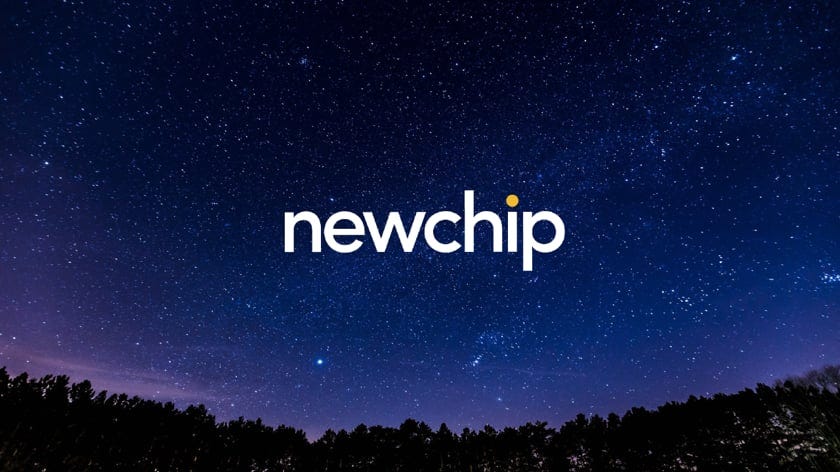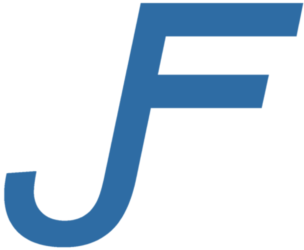
This is a follow-up to a blog that I wrote at the end of 2021, three weeks into the Newchip program.
Since then, I have finished the program and have an updated perspective from the experiences of myself and a few of my fellow mastermind group mates.
Overall I felt the program was worth it for me, but (I wish I didn’t have to write a but) Newchip needs to put in some work to not feel like a generic fundraising prep experience and live up to its full potential. I hope to break down the different features of the program in this blog and talk a little bit about what I liked, disliked, and where the program could up its game.
Curriculum highlights
Overall there was a LOT of curriculum. Bordering on too much. However, there were also some very helpful lessons across their curriculum. Especially if you don’t have a business background, this is a great place to start learning about how to build a venture scale business.
The curriculum included the following topic areas covered in this general order over the course of 6 months:
- Newchip’s Partnership resources
- Pitch coaching and pitch decks
- Startup legal
- Startup fundraising
- Investor development & management
- Business strategy
- Business metrics & KPIs
- Cash flow management
- Brand development
- storytelling
- Investment documents & financial instruments
- Financial modeling
- Due diligence
- Patents & intellectual property
- Board governance
- Building effective relationships
- Negotiation & deals
- Product development & improvement
- Mental health, wellness, & motivation
- Sales & commercialization
- Team building & recruiting
- Using video for success
- Strategic partnerships
- Company culture + diversity & inclusion
- Business operations
- Startup exits
One highlight: If you know you’re going to crowdfund, the curriculum on crowdfunding was very detailed. Newchip gave a step-by-step guide to launching a crowdfunding campaign with templates, examples, a detailed calendar for social media posts, etc.
One Lowlight: Some curriculum felt out of date, especially anything that mentioned the current state of the world, e.g. like the state of the fundraising environment.
Partnership Resources
Newchip had partnerships with all kinds of SaaS companies from AWS to Deel to Airtable. Maybe over 50 altogether. The AWS credits of $10k valid for two years may be enough to cover the price of admission alone for some founders. I also found their Docsend discount of 90% in the first year very helpful. I was tempted by others, but didn’t want to go overboard at this stage in our company.
Mentorship: Mentornity and assigned mentors
I think Mentornity, Newchip’s mentor platform, was one of the strong points of the program. Early on, just after rolling it out, I had several awesome mentor meetings. I didn’t use it as much towards the end of the program as my own mentorship networks had matured, but I did witness several mentors on the platform who no longer responded to meeting requests in a timely manner. I know another founder whose first couple mentor meetings were no-shows by the mentors. If they work out some of these kinks and ensure that their mentors are responsive, this mentor platform is extremely valuable.
Newchip also has an “assigned” mentor that they give each founder. I met with my mentor and he seemed smart, although I didn’t find him compelling enough for my company to keep meeting with him when there were other mentors on Mentornity that I felt were more compelling.
Advisory sessions
Newchip had a calendar of recurring sessions that founders could attend. I found these sessions to be differing levels of helpful, so I’ll go through and address each type from most to least helpful from my perspective:
- Deck reviews — These were great. Founders send in their most recent decks and a week later a Newchip venture fellow would asynchronously record a feedback session live-reacting to their decks which founders could review later. I received some really helpful feedback here. And I believe they may even bey scoring each section of your deck out of 5 now, a helpful indicator of what needs improvement.
- Business advisory sessions — These were sessions for thinking through strategy questions around founders’ businesses. They could cover many topics from business model to hiring strategy to how much money founders should raise depending on the founder’s questions. I booked a couple of these sessions and found them helpful for in-the-moment questions I was struggling with.
- Pitch coaching session — Newchip had both 3-minute pitch and 9-minute pitch coaching workshops. It’s helpful to get an outside perspective while also getting practice, although I did feel some feedback was subjective. It was great prep prior to pitching real investors.
- One-off learning sessions — These were live sessions on various topics that Newchip hosted on a weekly basis. Maybe this is my MBA entrepreneurship classes speaking, but I feel like I already had a background on many of these topics, so didn’t attend a ton of these.
Investor Relations (IR) program
Getting approval to be part of Newchip’s IR Program was the main goal for many founders entering the accelerator. With the requirements to receive program approval, most founders took ~3 months to get everything together and receive approval to join.
Once in the program, IR worked to gauge investor interest, make warm connections, and host live pitch “office hours”. While there was not a lot of transparency into which investors the IR team was putting my deal in front of, it did seem like the IR program works hard to put companies in front of investors. I’ve received 6 warm intros through the IR department introductions, 4 of which turned into pitch meetings. We’ve also had additional pitch “office hours” with 5 bunches of angels and / or other accelerators that invest in their portfolio companies. As I understand it, their investor relations team will keep attempting to put our deal in front of folks for up until 6 months after the program ends, so I’m hopeful we’ll see some additional interesting intros.
Demo Week
I have to say that Newchip’s Demo Week was probably the most overhyped part of the program. The demo week consisted of ~200 companies “pitching” pre-recorded pitches that we submitted three weeks before the actual demo week. When demo week finally arrived I couldn’t tell if a single investor saw my pitch. I didn’t hear anything from anyone on the Newchip side or on the investor side. No congratulations, no feedback. After the hard work to prep for demo week, it fell flat. You are allowed to participate in two demo weeks (they are hosted every other month) throughout the program, even if one is after you graduate. But after the first demo week I put minimal effort in to creating new materials for the second.
It also felt a little like adding insult to injury when I excitedly opened emails mentioning seeing us at demo week just to discover that they were inbound requests from companies who wanted to sell me software / services *sigh*.
Community
There was so much potential for community in this program, however the only community I experienced was in the Mastermind sessions. These were monthly sessions where we were meant to review curriculum and help each other with nagging questions that were top of mind for us. Our group started with 8, but by month three or four there were ~5 of us who were dedicated and came to every Mastermind session. I really enjoyed the sense of community that came with meeting every month. Outside of my mastermind group though there was zero facilitated connection with any of the hundreds of other founders in the program.
At the beginning of the program, I sent a note to the product manager at Newchip asking if they could implement Slack. He said:
“Hi Jackson — Thanks for the note and I appreciate your feedback. Yes, we’re actually working on a community initiative right now that may include a Slack (or similar) solution rollout. More to come in the next month or so!”
Unfortunately this never happened. I heard from my Mastermind lead that they previously had a Slack and that it turned into complaining from too many founders, so they shut it down. I’m frustrated that they never figured out another way to connect founders and create serendipity though.
With so many founders going through the program there could have been many cool opportunities for fun, genuine connection, facilitated partnership and more, but Newchip dropped the ball here. Where was the fun? Where was the Newchip branded swag? Where was the broader community connections? I hope they do better to facilitate this in the future.
Summary
Overall if I had to choose whether or not to go through this program again, I would say yes. There’s so much potential here for a “hell yes” though, that I do hope Newchip sees this (I’ll be sending it to them) and makes some adjustments to the program. I wanted to end with an exercise that I enjoy doing with my team called plus, minus, delta to summarize some of the positives, negatives, and biggest opportunities for change for Newchip
+ Plus
- AWS credits and Docsend discount; there were some other good ones we didn’t take advantage of.
- Specific pieces of curriculum (e.g. Regulations for fundraising, KPIs, crowdfunding if we had crowdfunded).
- Pushed me to get ready for fundraising in a structured way.
- Deck reviews, business advisory sessions, pitch feedback.
- Mentors I met on the Mentornity platform.
- The small community I met in my mastermind sessions. I really enjoyed getting to know them!
- While I’m not sure of the success rate of claiming a refund, for founders who graduate, they do have an accelerator guarantee. You get 1) 10 intros to potential funders, 2) at least one investment proposal / term sheet, or a merger / acquisition offer within 1 year of your start date. I would guess most people who want their money back would not reach graduation requirements.
– Minus
- Customer service: Frustration from some of my peers in my Mastermind group. One had a huge technical error occur with the platform and didn’t get access to the right curriculum, and was behind because of it. Others found it hard to get in contact with someone who really wanted to listen to their pain points outside of our Mastermind mentor.
- Over-hyped demo day: It’s a week of tons of founders pitching asynchronously in back-to-back time slots. Investors don’t seem to be tuning in on their own; you would have to tell people to tune in at the time you are slotted.
- Accountability: They don’t help with accountability at all outside of the Mastermind sessions and weekly “what’s going on this week” emails. The program does point out that you get out what you put in, so if you join and then don’t take advantage of their offerings, they will let you do that and not care one bit. A tiny bit more accountability driving would be helpful.
∆ Delta — my top recommendations
- User Experience: Slow down and focus on user experience and quality a bit more. Newchip is growing quickly and obviously has value. But my impression is they have a heavy sales focus and grow as much as possible mentality. Go from a polarizing program to one with a universal good experience.
- Transparency and authenticity: When trying to bring on founders, point out that the program is still evolving and growing. Point out that some founders have a poor experience but that you’re working to solve those problems. Keep founders updated on your program updates, what your options are, etc.
- Community and Fun: With all the founders, there is a lot of potential for community. Lean into that advantage more, and give us tools to meet each other, gain value from each other, and more.
Wrap
That’s it for now! If you found this helpful, all I ask is to give me a follow on Twitter, where I’m trying to build out an audience from pretty close to 0 (57 as of this post!). I’m happy to chat if you want more help deciding on Newchip, just shoot me a message on Linkedin or Twitter!

